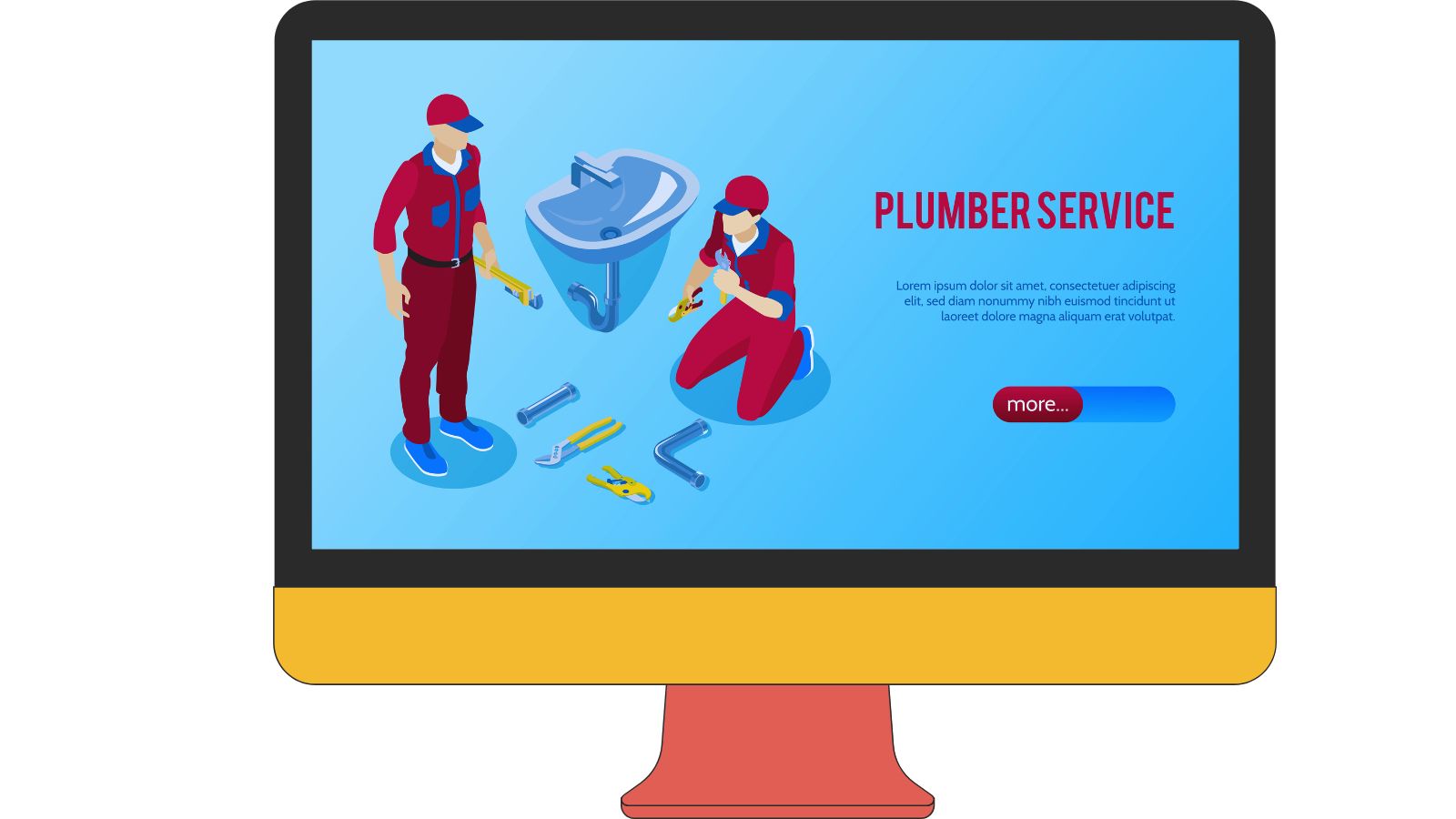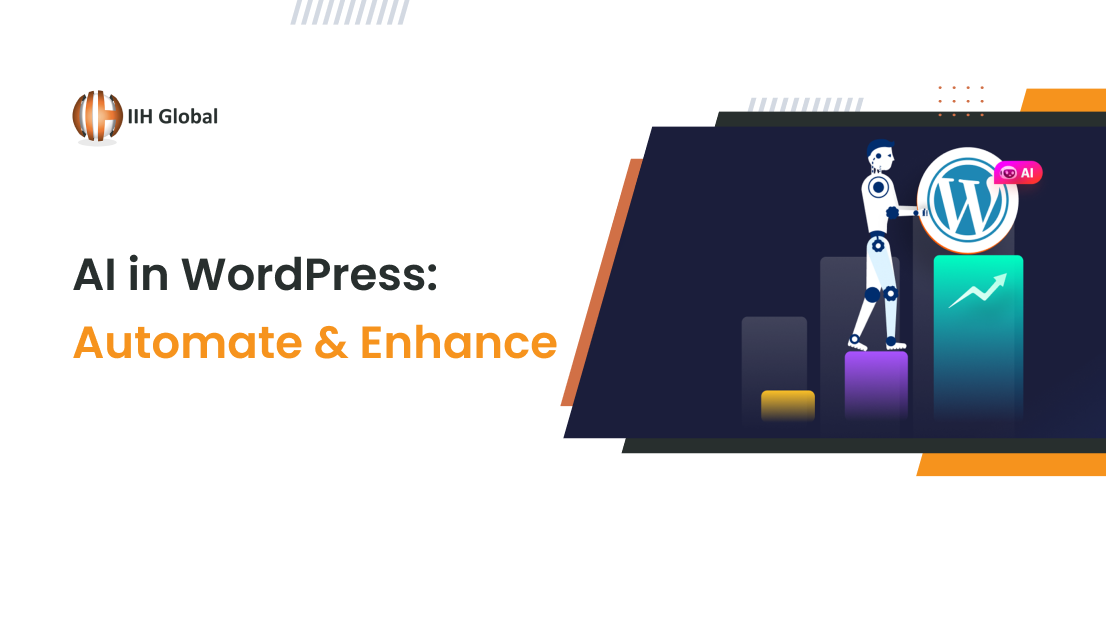How Much Does It Cost To Develop A Plumber's Website?
A plumber's website can be used to provide potential customers with information about your plumbing business, the services you offer, and how customers can contact you. But how much does it cost to develop a plumber's website? With the cost of plumber website development varying greatly, it can be difficult to know how much you should be prepared to spend. In this blog post, we'll explore the cost of developing a plumber’s website. Let's dive into the cost factors and find out the investment required to develop a successful website for your plumbing business. A professional website gives a plumber a platform to showcase their skills, experience, and qualifications. It serves as a virtual business card that potential clients can visit to learn more about the plumber's expertise. A well-designed website can instill trust and credibility, making it more likely for customers to choose your services over competitors. A website allows a plumber to expand their reach beyond their local area. People often search online for plumbing services, and a website ensures that your business appears in these searches. This opens up opportunities for new customers from nearby neighborhoods or even outside your immediate service area. Unlike a physical store or office, a website is available 24/7. Customers can visit your site, learn about your services, and even contact you outside of your regular business hours. This accessibility can lead to more inquiries and appointments, increasing your overall business volume.Why Does A Plumber Need A Website?
15 Key reasons why a plumber needs a website, and how it can benefit both the plumber and their customers.1. Establishing Credibility
2. Reaching a Wider Audience
3. 24/7 Availability
4. Showcasing Services
A plumber's website can feature a detailed list of services offered. This can include everything from emergency repairs to installation of new plumbing systems. By showcasing your services online, you're providing potential clients with the information they need to make an informed decision.
5. Customer Reviews and Testimonials
A website provides a platform for satisfied customers to leave reviews and testimonials. Positive feedback can go a long way in building your reputation and attracting new customers. It's a powerful form of word-of-mouth advertising that can greatly influence potential clients.
6. Competitive Edge
While some plumbers may still rely on traditional methods, having a website gives you a competitive edge. It shows that you're keeping up with the times and are willing to invest in your online presence. This can set you apart from competitors who haven't yet embraced the digital world.
7. Cost-Effective Marketing
Compared to many other forms of advertising, maintaining a website is relatively cost-effective. Once it's set up, the ongoing expenses are minimal. This makes it an attractive option for plumbers looking to market their services without breaking the bank.
8. Educational Resource
A plumber's website can also serve as an educational resource. You can create blog posts or articles about plumbing tips, common issues, and preventive measures. This not only provides value to your visitors but also positions you as an expert in your field.
9. Direct Communication
Through your website, customers can contact you directly via email or a contact form. This streamlines the communication process, making it easier for customers to reach out and for you to respond promptly.
10. Mobile-Friendly Experience
Many people use their smartphones to search for services, including plumbing. A website that's optimized for mobile devices ensures that potential clients can easily navigate your site, leading to a better user experience and increased conversion rates.
11. Adapting to Changing Consumer Behavior
More and more people are turning to the internet to find local services, including plumbers. By having a website, you're adapting to this changing consumer behavior, making it more likely for potential customers to find and choose your services.
12. Providing Pricing Information
While exact pricing may vary based on the specifics of each job, you can provide general pricing information on your website. This gives potential clients a rough idea of what to expect, which can help them make decisions more quickly.
13. Building a Brand
A website allows you to build a consistent brand image for your plumbing business. You can showcase your logo, use consistent colors, and present your business in a professional manner. This branding helps create a memorable impression on visitors.
14. Easy Updates
Whether you're adding new services, changing contact information, or updating pricing, it's much easier to make these changes on a website than through traditional printed materials. This ensures that your information is always up-to-date.
15. A Platform for FAQs
Finally, a website is an ideal place to address frequently asked questions (FAQs). This helps potential clients get the information they need without having to reach out directly, saving both parties time.
Types of Plumbing Websites
Plumbing websites come in various forms, each serving a unique purpose within the plumbing ecosystem.
1. Local Plumbing Service Websites
Local plumbing service websites are the backbone of the plumbing industry. These websites are tailored to specific geographical areas, helping users find nearby plumbing professionals quickly.
They usually include the following features:
- Service Offerings: Local plumbing websites showcase a wide range of services offered by the plumbing company, such as repair, installation, maintenance, and emergency services.
- Contact Information: These sites prominently display contact details, including phone numbers, email addresses, and sometimes live chat options.
- Customer Reviews: Testimonials and reviews from satisfied customers provide social proof and build trust.
- Service Areas: They often list the areas they serve, helping users determine if their location is covered.
Local plumbing service websites optimize for local SEO, making them easily discoverable for people searching for plumbing services in specific regions.
2. Plumbing Supplier Websites
Plumbing supplier websites cater to both professional plumbers and DIY enthusiasts. They offer a wide range of plumbing supplies, tools, and equipment for purchase.
Key features of these websites include:
- Product Catalog: Plumbing supplier websites showcase their inventory, from pipes and fittings to specialized tools, making it easy for plumbers and homeowners to find what they need.
- Technical Information: Detailed product descriptions, specifications, and usage guidelines help customers make informed decisions.
- Online Shopping: Many plumbing supplier websites provide e-commerce functionality, allowing users to buy products online and have them delivered to their doorstep.
- Customer Support: These sites often have customer support options for inquiries, troubleshooting, and order assistance.
3. Plumbing Educational Websites
Plumbing educational websites focus on providing valuable information and resources related to plumbing. They are beneficial for both consumers and aspiring plumbers.
Key features include:
- How-to Guides: Detailed tutorials on various plumbing tasks, such as fixing common issues, replacing fixtures, or installing water heaters.
- Maintenance Tips: Advice on preventive maintenance to extend the lifespan of plumbing systems and avoid costly repairs.
- DIY Advice: Plumbing educational websites empower users with DIY knowledge, but they often emphasize the importance of professional help for complex issues.
- Career Information: Some of these sites provide information for individuals interested in pursuing a career in plumbing, including training, certification, and job opportunities.
4. Plumbing Company Portfolio Websites
Companies looking to showcase their expertise and projects often create portfolio websites.
These websites feature:
- Project Galleries: Visual representations of completed plumbing projects, highlighting the company's skills and capabilities.
- Client Testimonials: Feedback from satisfied clients, showcasing the company's reputation and customer satisfaction.
- Service Specializations: Information about the specific plumbing services the company excels in, such as commercial plumbing, residential plumbing, or eco-friendly solutions.
5. Plumbing Industry News and Blogging Websites
Websites dedicated to plumbing industry news and blogging offer the latest updates, trends, and insights.
These sites often feature:
- News Articles: Coverage of industry events, technological advancements, and regulatory changes affecting the plumbing sector.
- Expert Opinions: Contributions from experienced plumbers, industry experts, and thought leaders, providing valuable perspectives.
- Educational Content: Informative blog posts on plumbing best practices, maintenance tips, and energy-efficient solutions.
From local service providers and suppliers to educational resources and news platforms, these websites contribute to the efficiency and growth of the plumbing industry.
Whether you're a homeowner in need of a reliable plumber or a plumbing professional seeking supplies and information, the diverse range of plumbing websites ensures that your needs are met.
Key Factors that affect the Cost of Plumber’s Website
A well-designed website not only serves as a virtual storefront but also helps in attracting potential customers and establishing a credible online presence. However, the cost of creating a plumber's website can vary significantly based on several key factors.
Let's explore these factors that can influence the cost of a plumber website.
1. Website Design and Complexity
The design and complexity of the website play a crucial role in determining the cost. A simple, straightforward plumbing website with basic features will be more affordable than a complex, custom-designed site with advanced functionalities such as appointment scheduling, customer reviews, and interactive tools.
2. Customization and Branding
Plumbing companies often want their website to reflect their unique brand identity. Customization, including the incorporation of the company's logo, color scheme, and specific branding elements, can add to the overall cost of the website.
3. Number of Pages
The number of pages on the website is another factor to consider. A larger website with multiple pages, such as services, about us, contact, blog, and portfolio, will generally cost more to develop than a smaller, one-page website.
4. Content Creation
High-quality and engaging content is essential for a successful website. Whether it's informative articles, service descriptions, or customer testimonials, creating compelling content requires time and expertise, which can impact the cost.
5. E-commerce Functionality
If the plumbing company intends to sell products or parts online, the inclusion of e-commerce functionality will increase the development cost. This involves setting up a secure online store, payment gateways, product listings, and inventory management.
6. Mobile Responsiveness
With the majority of users accessing websites from mobile devices, it's crucial that the plumber's website is responsive and mobile-friendly. Ensuring a seamless experience across different screen sizes requires additional development work, impacting the cost.
7. Search Engine Optimization (SEO)
Optimizing the website for search engines is essential for attracting organic traffic. Incorporating proper SEO practices during the development phase can enhance visibility in search results, but it may add to the overall cost.
8. Maintenance and Updates
Websites require ongoing maintenance to ensure they remain secure, up-to-date, and functioning correctly. The cost of regular updates, security patches, and technical support should be factored into the total cost of the website.
9. Hosting and Domain
Every website needs a hosting server and a domain name. Depending on the chosen hosting plan and domain registration, these ongoing expenses can vary and should be considered when calculating the website's cost.
10. Integrations
Plumbing companies may want to integrate their website with other tools or platforms, such as appointment scheduling software, CRM systems, or social media. Each integration adds complexity and can affect the cost.
11. Visual Elements
Including high-quality images, videos, and graphics on the website can enhance its visual appeal. However, these elements may come with licensing fees or require custom design work, impacting the cost.
12. Geographic Location
The cost of website development can vary based on the geographic location of the plumbing company and the prevailing rates for web development services in that area.
13. Experience of the Web Development Team
The expertise and experience of the web development team or agency chosen for the project can influence the cost. A highly skilled team with a proven track record may charge higher rates but can deliver a more polished and effective website.
14. Timeframe
Urgent deadlines or a need for expedited development can increase the cost. Planning the website development well in advance can help in avoiding rush charges.
15. Additional Features
Any additional features or functionalities not mentioned above, such as online chat support, customer portal, or integration with third-party services, can contribute to the overall cost.
The cost of creating a plumber's website depends on a variety of factors, ranging from design complexity and content creation to SEO and ongoing maintenance.
How Much Does a Plumber's Website Cost?
The average cost of a plumber's website can vary based on several factors, including the website's complexity, features, design, and the specific services offered by the plumber.
Here's a breakdown of the typical cost ranges for a plumber's website:
- Basic Template Website: As mentioned, a simple website with a basic template design, limited pages, and standard features falls into this category. This option is suitable for plumbers with a tight budget. The cost typically ranges from $500 to $1,000.
- Custom Designed Website: A custom-designed website tailored to the plumber's branding, with more advanced features, responsive design, and additional pages, will cost more. The price range for this level of customization is usually between $1,000 and $4,000.
- E-commerce Capabilities: If the plumber wants to sell plumbing supplies or offer online booking and payment options, an e-commerce website will be more expensive. The cost can increase to $4,000 or beyond, depending on the complexity of the e-commerce features.
- Advanced Functionality: Websites with interactive features like appointment scheduling tools, live chat, and advanced contact forms will have a higher cost, potentially ranging from $2,500 to $8,000 or more.
- SEO Services: If the plumber wants to invest in search engine optimization (SEO) services to improve online visibility, there will be additional costs. These can vary widely based on the extent of SEO work required.
- Ongoing Maintenance: Don't forget to consider the ongoing maintenance costs, which can range from a few hundred dollars to over a thousand dollars annually, depending on the level of support needed.
Keep in mind that these are general estimates, and the actual cost of a plumber's website can be influenced by the specific requirements and the chosen web development agency or freelancer.
It's essential to discuss your needs and budget with plumbing website design company to get a more accurate quote for your specific project.
Conclusion:
The cost to develop a plumber/plumbing website ranges from $500 to $8,000 or more. The final cost is determined by several factors, including the type and complexity of the website, as well as the location and expertise of the development team.
Connect with IIH Global, a leading plumbing website design company, for affordable, top-notch services.
Request a free quote for plumber website development now or email us at sales@iihglobal.com to hire expert web developers.
Start building an exceptional online presence for your plumbing business.







